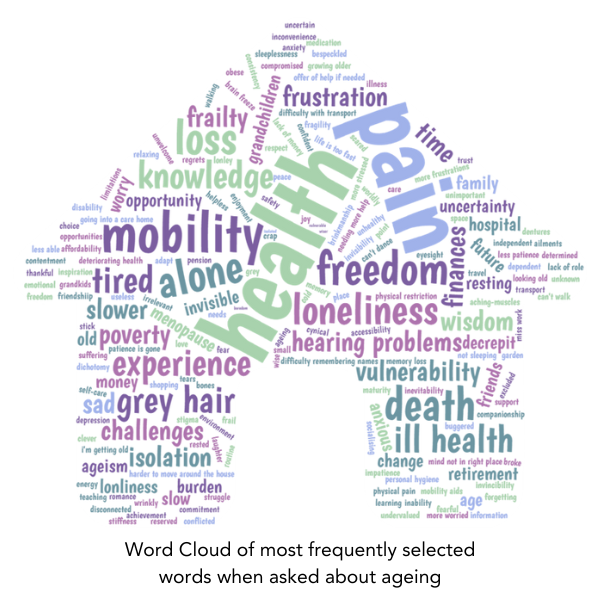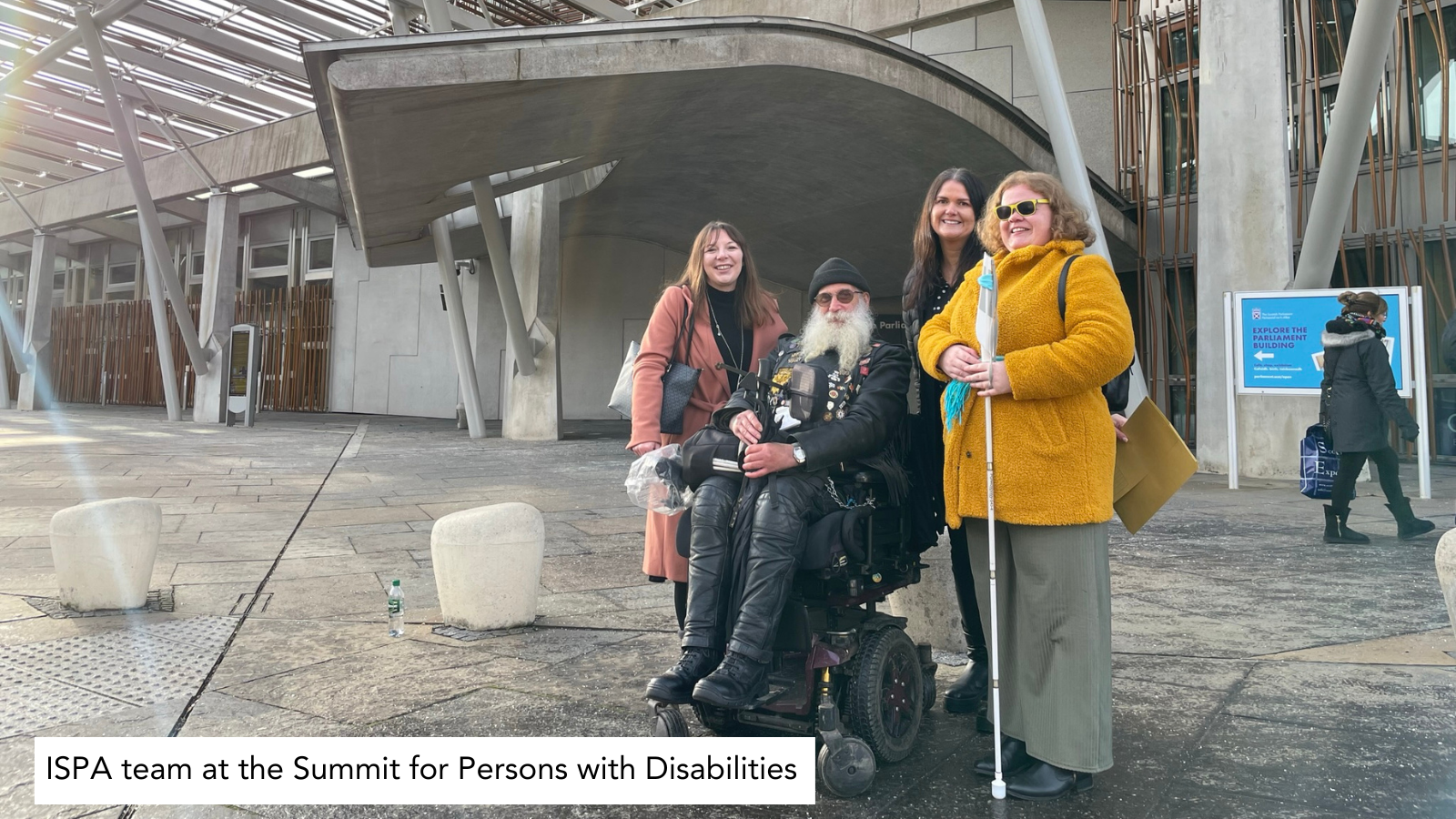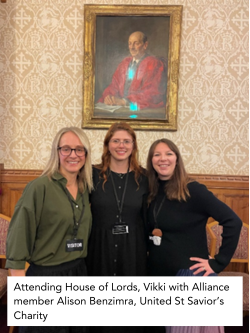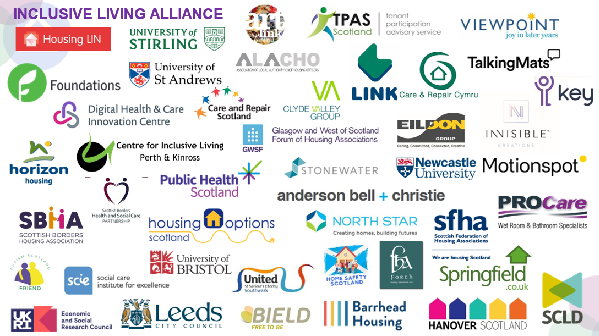Celebrating Year Two of the Intersectional Stigma of Place-Based Ageing (ISPA) Project on Scottish Housing Day 2024
The Intersectional Stigma of Place-Based Ageing (ISPA) Project celebrated its second year on Scottish Housing Day by exploring the key activity around ‘Homes for Life’.

Professor Vikki McCall, University of Stirling, hosted Scottish Housing Day on 18th September 2024 with Ashley Campbell, from Chartered Institute of Housing (CIH) Scotland attended by the Scottish Housing Minister, Paul McLennan MSP, and Inclusive Living Alliance members Angela Currie, CEO of Hanover Scotland, Jill Pritchard, Vice-Chair of Horizon Housing Association and ISPA Community Peer-Researcher Gordon Saunders, Chair of Scottish Borders Tenants Organisation.
The ISPA Project is building momentum and enthusiasm across how we centralize housing solutions to tackle stigma linked to age, disability and place. Thinking about how this supports ‘Homes for Life’ is a good way of understanding what we need to do to future-proof and normalize inclusive, accessible, and flexible design into our homes and built environments.
Our Year 2 summary and our supporting Year 2 Reports highlight a year of insights and activity that give insights to how we build ‘Homes for Life’. These include:
Where we should focus investment - those living in more multi-deprived areas are more likely to experience discrimination. Also, 50% of those aged 85+ who reported any type of discrimination, reported age and/or disability discrimination. Our summary report and an additional report Mapping Age and Disability Discrimination offers descriptive findings across Scotland and some of our results from the regression analysis using UK Data.
'Home for life' supports ageing well - ISPA is collecting the everyday experiences of over 100 people with disability and/or ageing-related challenges. We are just finishing the first diary wave, on the theme of ‘growing older’. To give you a flavour of this, one of the questions we asked was “What 5 words come to mind when you think of growing older?”. In the Word Cloud below, the largest words are those which were mentioned most frequently, so the image helps give a sense of common issues for our Community Peer Researchers (CPRs), indicating the need for homes to support health, pain and mobility.

‘Homes for Life’ is about people - At ISPA, we have been joined by some incredibly motivated people, with a range of experiences, as Community Peer Researchers, who all highlight that having an accessible, flexible 'Home for Life' supports key outcomes, such as living independently, bathing, sleeping, eating, and being warm. We have captured the reflections of this work in our reflective report on the first ever Summit at the Scottish Parliament held to celebrate 'people living with disabilities'.

'Homes for life' is about the built environment, infrastructure and green spaces - inclusive interventions go beyond bricks and mortar. We offer a case study called 'Nurturing Inclusion' with Elaine Cochrane, Senior Health Improvement Officer, Clackmannanshire and Stirling Health and Social Care Partnership, and Krissy Stevenson, Senior Project Officer for The Conservation Volunteers at Stirling Health and Care Village. The case study shows why it is so important to ensure inclusion for disabled people within outdoor, as well as indoor, spaces.
'Homes for life' must overlap between strategies around housing, technology, sustainability, ageing, health and social care - our practice-based insights were published February 2024 'Thinking about Stigma in Housing, Health and Social Care Delivery'. This shows that stigma is often intensified for excluded groups, and inclusive design is a key part of helping older people and disabled people to feel included.
Do we discriminate by design? - we have just launched a thinkpiece from our expert roundtable in London with disabled activist Millie Hawes and Paul Roberts, Managing Director of Newid Limid (report here) Participants mapped out solutions and actions that the sector can take to prevent discrimination by design and support an argument for 'Homes for Life'.
Making Change via an Inclusive Living Alliance
 To implement the findings from the ISPA Project, we have been building a strong and extensive Inclusive Living Alliance. The Year 2 summary outlines the key activities, but some highlights include attending the Housing LIN celebration at the House of Lords, an amazing experience reinforcing the importance of everyone’s work in housing, health and social care on supporting this theme. We were also able to present at the successful Housing LIN Summit 2024, on Inclusive Spaces: Retrofitting to Adapt our Homes for 21st Century Standards.
To implement the findings from the ISPA Project, we have been building a strong and extensive Inclusive Living Alliance. The Year 2 summary outlines the key activities, but some highlights include attending the Housing LIN celebration at the House of Lords, an amazing experience reinforcing the importance of everyone’s work in housing, health and social care on supporting this theme. We were also able to present at the successful Housing LIN Summit 2024, on Inclusive Spaces: Retrofitting to Adapt our Homes for 21st Century Standards.
Principal Investigator Vikki McCall also attended the Buckingham Palace Garden Party this year, nominated by the Social Care Institute for Excellence (SCIE), who are key members of the ISPA Inclusive Living Alliance. SCIE also included ISPA in an incredible Showcase webinar (opens new window).
The number of Alliance members has reached 40, and if the key theme of homes for life has interested you, we would very much welcome you to our amazing Alliance!

The Intersectional Stigma of Place-Based Ageing (ISPA) Project is funded by the Economic and Social Research Council and runs from September 2022 to September 2027.
In partnership with University of Stirling, Unversity of St Andrews, Housing LIN, Newcastle University, Unversity of Bristol and the Scottish Federation of Housing Associations.


Comments
Add your comment